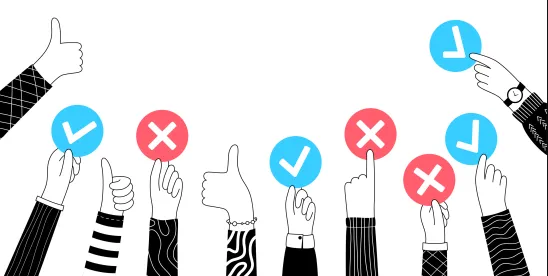In a recent decision, GAO announced that it was clarifying its pleading standard for bid protests. For many years, GAO had described a minimally acceptable protest pleading as one with “either allegations or evidence sufficient” to establish a likelihood of improper agency action. Going forward, as articulated in Warfighter Focused Logistics, Inc., B-423546, B-423546.2, Aug. 5, 2025, 2025 WL 2237333, the standard now calls for “credible allegations that are supported by evidence and are sufficient” to make that showing. GAO linked this revised formulation to a request from Congress in Section 885 of the 2025 National Defense Authorization Act to clarify and enhance its pleading standard.
It is not immediately clear whether this means a change in protest practice at GAO. GAO seemed to suggest that the updated language was not a change to the pleading standard itself, but a clarification to better align the stated legal standard with its longstanding stance that “‘bare allegations’ or allegations based upon ‘information and belief’ are not sufficient to meet our pleading standards.” We will be closely watching how GAO applies the standard in its decisions to fully understand the level of evidence required to clear GAO’s pleading standard, and it is likely to remain a heavily fact-specific analysis. Regardless, protesters, as ever, should make sure they substantiate allegations with evidence and awardees should retain counsel to safeguard their interests through effective dismissal requests.
| New Formulation of GAO Pleading Standard | “Our Bid Protest Regulations require that protests include a detailed statement of the legal and factual grounds of protest and that the grounds be legally sufficient. 4 C.F.R. § 21.1(c)(4) and (f). This requirement contemplates that protesters will provide, at a minimum, credible allegations that are supported by evidence and are sufficient, if uncontradicted, to establish the likelihood of the protester’s claim of improper agency action. Protesters must provide more than a bare allegation; the allegation must be supported by some explanation and evidence that establishes the likelihood the protester will prevail in its claim of improper agency action.” Warfighter Focused Logistics, Inc., B-423546, B-423546.2, Aug. 5, 2025, 2025 WL 2237333, at *3 (emphasis added). |
| Old Formulation of GAO Pleading Standard | “To achieve this end, our Bid Protest Regulations, 4 C.F.R. § 21.1(c)(4) and (f), require that a protest include a detailed statement of the legal and factual grounds for the protest, and that the grounds stated be legally sufficient. These requirements contemplate that protesters will provide, at a minimum, either allegations or evidence sufficient, if uncontradicted, to establish the likelihood that the protester will prevail in its claim of improper agency action.” Mission Analytics, LLC, B-422841.3, Dec. 11, 2024, 2024 CPD ¶ 305 at 3 (emphasis added). |
The facts of Warfighter Focused Logistics illustrate GAO’s application of the formulation. In a post-award challenge to a tire-chain procurement, the protester alleged that the awardee falsely represented its inventory. Specifically, the pro se protester alleged that the awardee shared the protester’s supplier and that it had purchased the supplier’s inventory of tire chains and attached an email from the supplier to the protester stating the supplier had other partners. GAO dismissed the protest ground because the protester did not provide evidence that awardee could not get the tire cross chains from anywhere else or that, even if the awardee shared the supplier, the supplier did not have enough tire chains for both offerors.
Unsuccessful offerors must work closely with counsel to assemble factual support—debriefing materials, contemporaneous communications, relevant contract terms, declarations, historical procurement data, or other external sources—before filing a protest. GAO expressly acknowledged that protesters rarely have access to an awardee’s proposal yet emphasized that access is not necessary; what matters is supplying evidence sufficient to demonstrate a likelihood of agency error. BNL, Inc., B-409450, May 1, 2014, 2014 CPD ¶ 138 at 7 (“While we do not believe access to, or knowledge of an awardee’s proposal is necessary to advance a sufficiently supported ground of protest (as we recognize that protesters rarely, if ever, have access to proposals at the time they file a protest,… the protester must provide some basis to support its allegation of improper agency action.”). Providing robust evidence in a protest to support the protest allegations can help clear GAO’s adjudication of requests for dismissal for failing to meet the pleading standard.
Takeaways:
- Importance of Intervention – It is more important than ever to intervene in GAO protests and to pursue requests for dismissal where the record supports it.
- Substantiate Protest Grounds – Protesters must carefully evaluate the evidentiary underpinnings of every asserted ground—especially those targeting the awardee’s evaluation—and should marshal publicly available data, declarations, and other forms of evidence to substantiate their allegations.
- Monitor Published Decisions – Practitioners should review published rulings to discern how GAO applies the evidentiary threshold.






 />i
/>i
